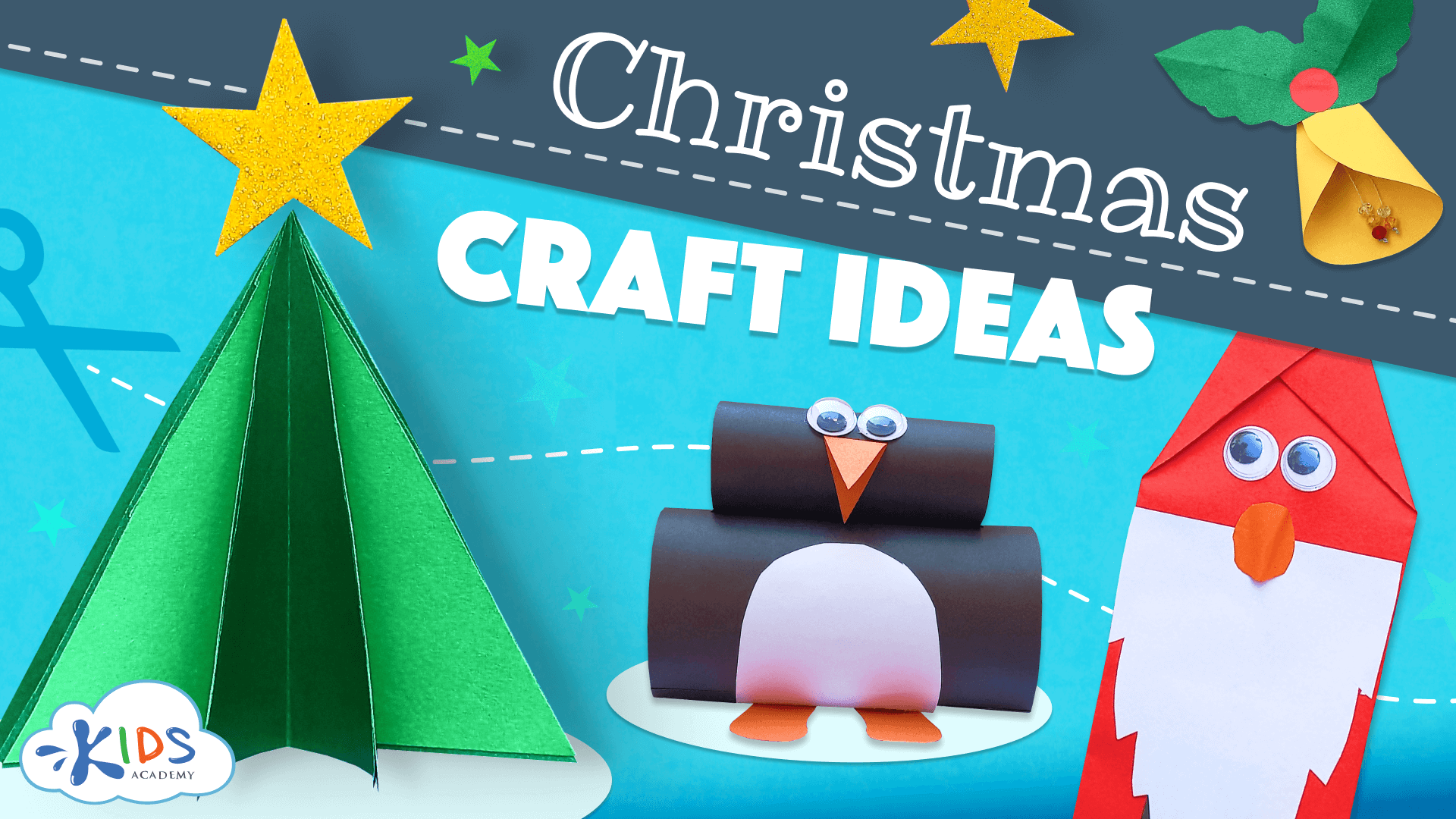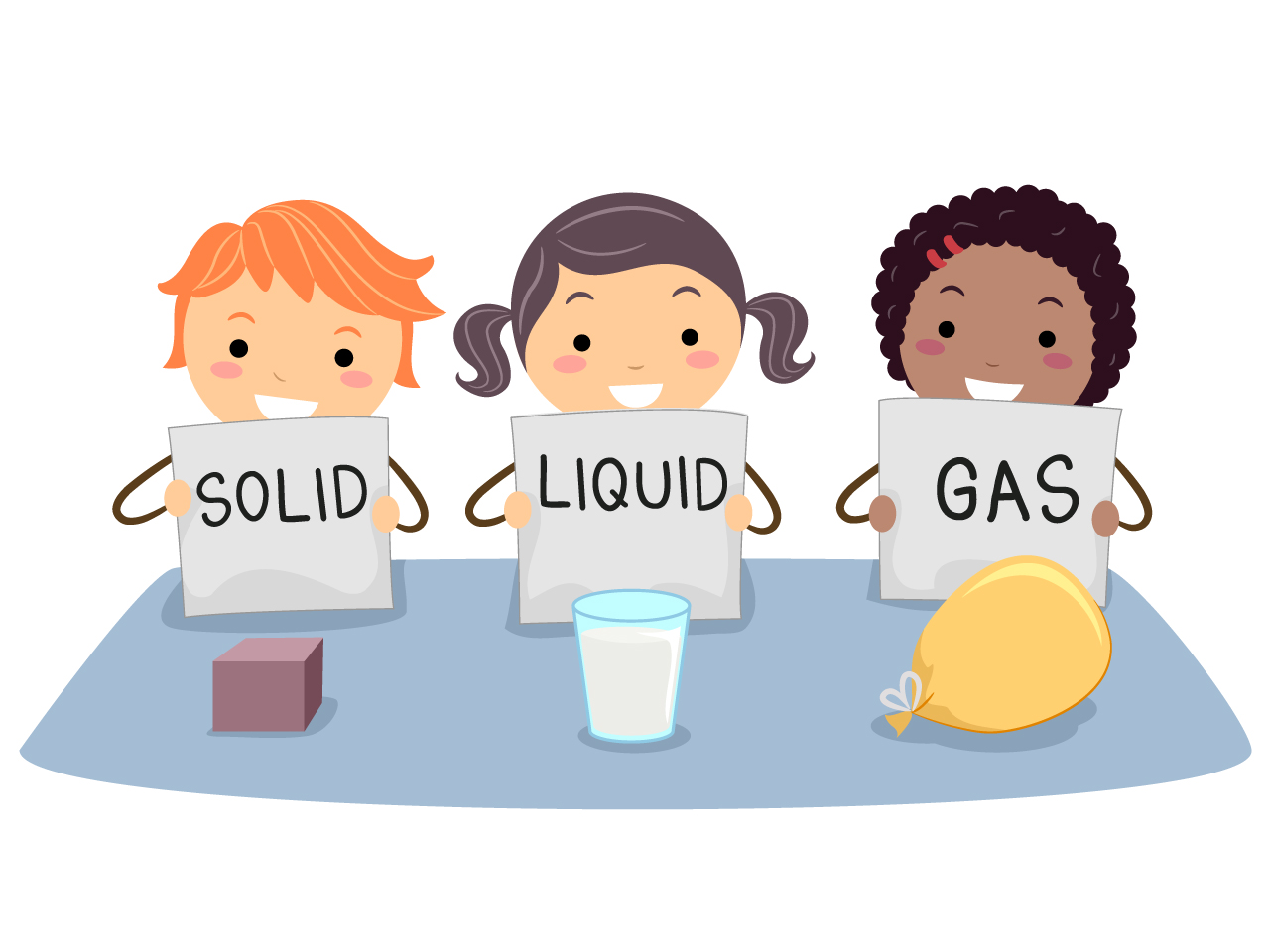Understanding fossils Worksheets for Ages 3-8
4 filtered results
-
From - To
Explore our engaging "Understanding Fossils Worksheets" designed for children ages 3-8. These fun and interactive worksheets introduce young learners to the fascinating world of fossils, enhancing their knowledge and sparking curiosity about the Earth's history. Through creative activities, kids will learn about different types of fossils, the process of fossilization, and the significance of fossils in understanding prehistoric life. Each worksheet fosters critical thinking and fine motor skills while providing a delightful learning experience. Perfect for classrooms or home schooling, our resources will inspire your child to become a budding paleontologist. Dive into the adventure of learning with our worksheets today!
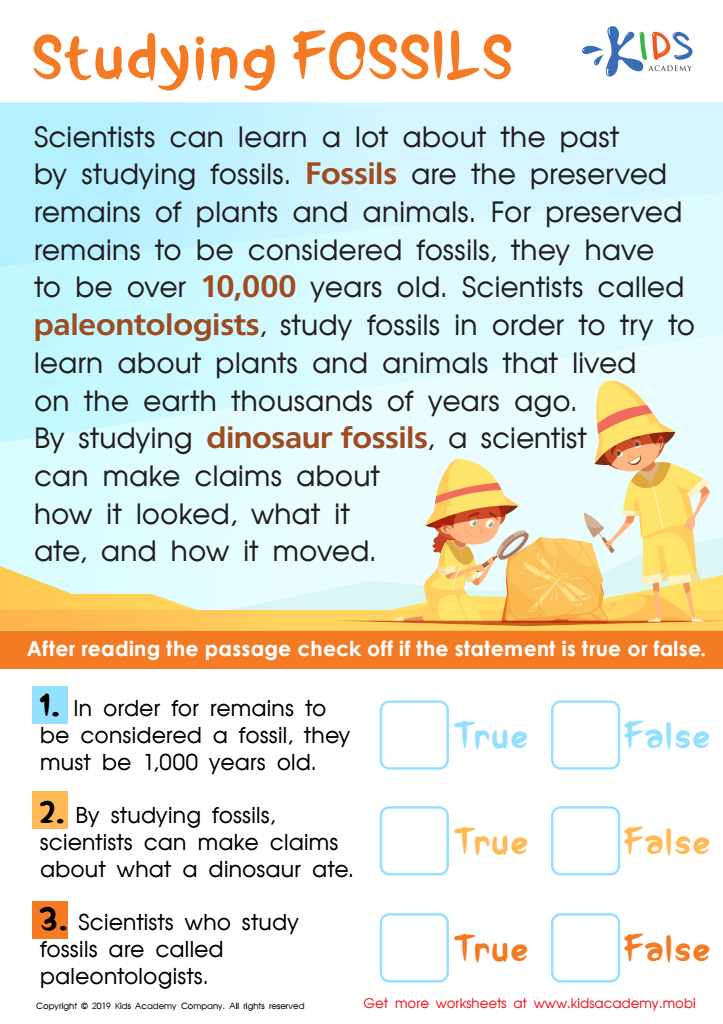

Studying Fossils Worksheet
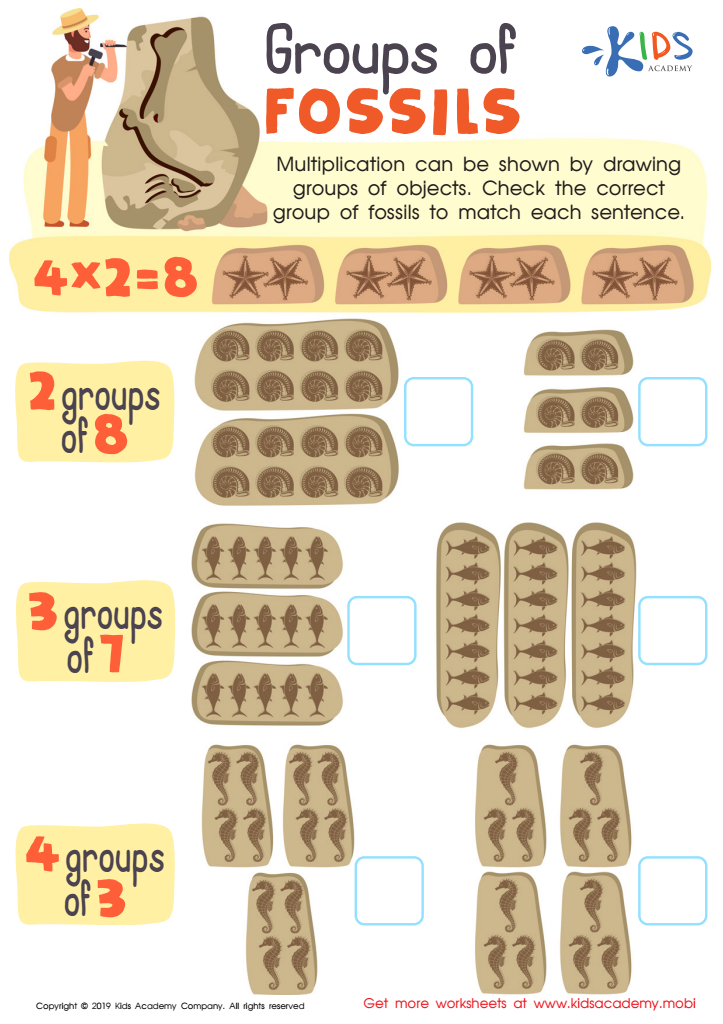

Groups of Fossils Worksheet
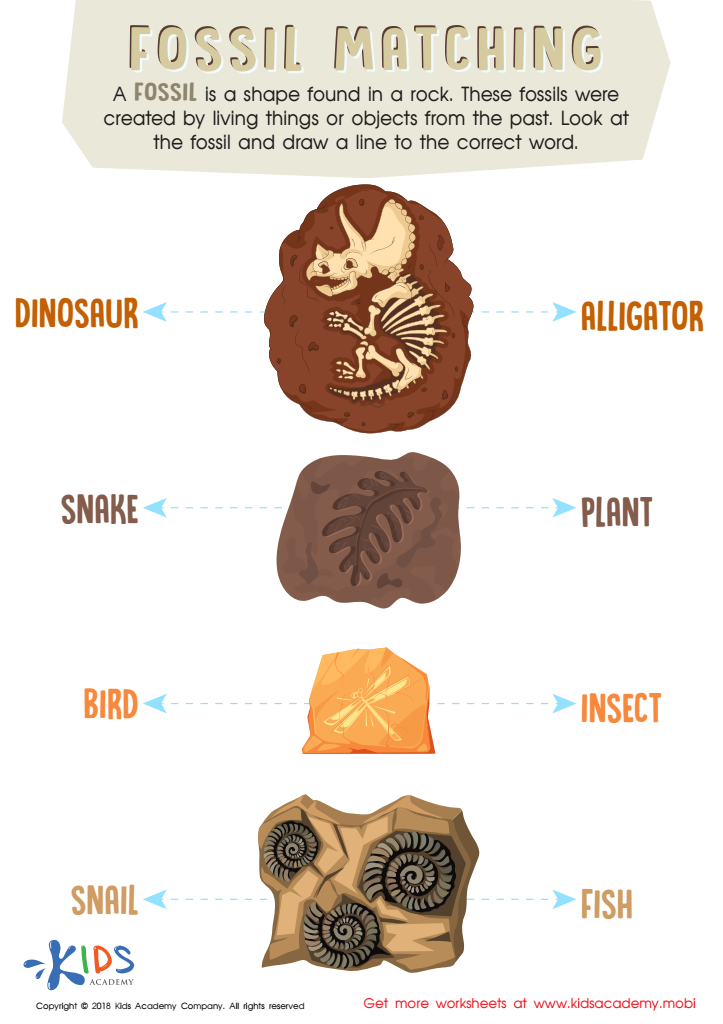

Fossil Matching Worksheet
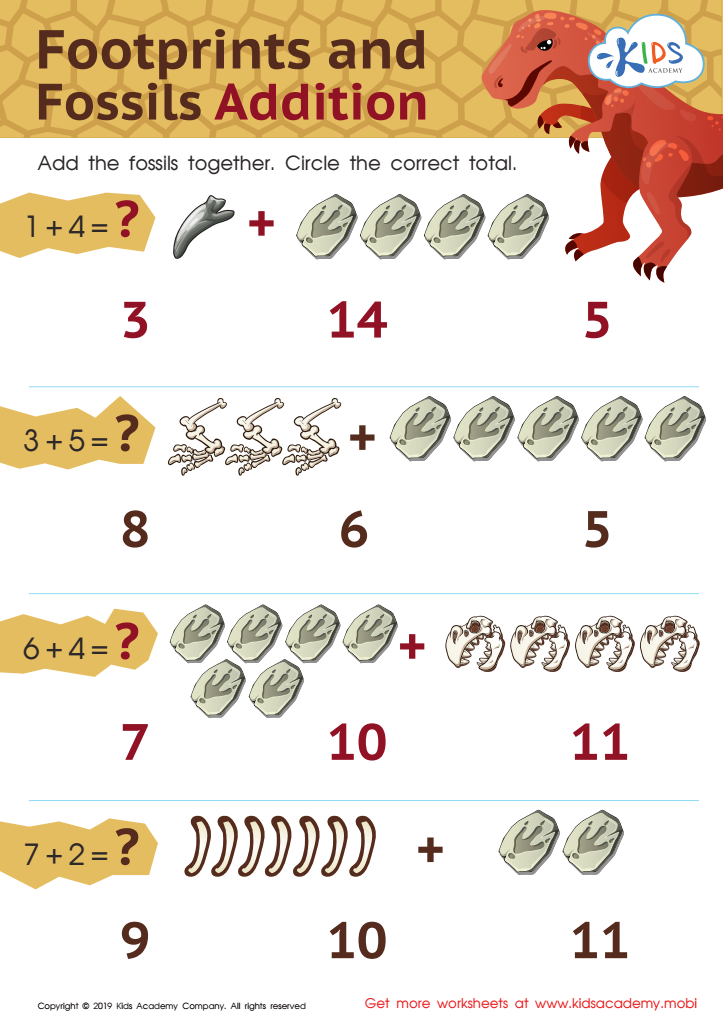

Footprints and Fossils Addition Worksheet
Understanding fossils is crucial for young children aged 3-8, as it lays the foundation for scientific thinking and curiosity. Engaging with fossil concepts fosters a sense of wonder about the natural world, sparking their imagination and interest in history and science. Fossils serve as tangible evidence of life from millions of years ago, encouraging kids to ponder questions about biodiversity, extinction, and the evolution of species.
Teaching children about fossils helps them develop observational skills and critical thinking. By examining fossil patterns and formations, they learn how to analyze and draw conclusions based on data, which are vital skills for their future education. Additionally, fossils can promote discussions about the environment, conservation, and our planet's changes over time—essential themes in today’s world.
Moreover, exploring fossils can enhance a child’s vocabulary and comprehension. Learning new terms related to paleontology broadens their linguistic and cognitive horizons. Engaging activities like fossil hunting or creating casts can be both educational and fun, making science accessible and enjoyable.
Ultimately, understanding fossils not only nurtures a child’s curiosity and foundational skills but also instills a lifelong appreciation for science and history, creating informed and inquisitive future citizens.
 Assign to My Students
Assign to My Students




